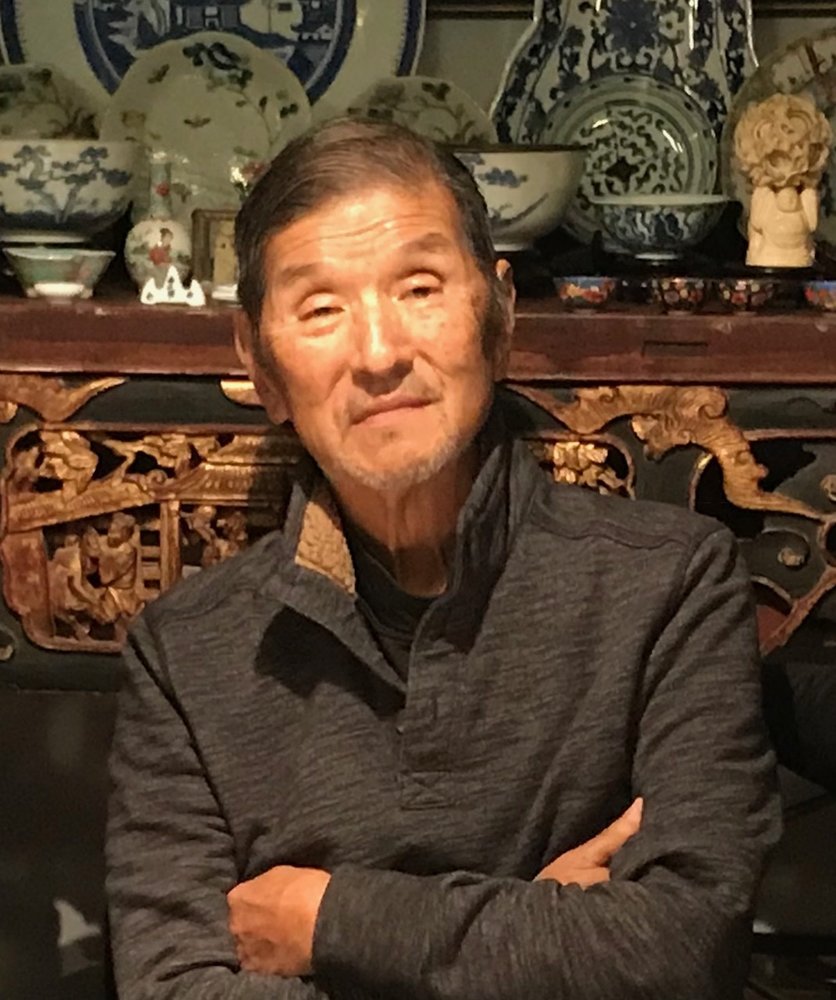





Visitation
Obituary of Naran Sansha Ivanchukov
Naran S. Ivanchukov, was born in Sofia, Bulgaria on December 12, 1937, the seventeenth of eighteen children to Sansha and Saha Ivanchukov. A Kalmyk Mongol, descended from the Western Oirat Mongol clans directly related to Chinggis (aka Genghis) Khan, Naran embodied the strength, will and perserverance of the long line of warriors he came from. When Chinggis Khan conquered Europe, many Mongols did not return to Mongolia when he died. The Kalmyks migrated further west into Czarist Russia, where they lived, farmed and trained horses for the Don Cossacks. They also fought for the Russians many times over the years and were granted autonomy for serving in the front lines and for their fierce fighting and horsemanship skills.
Over time however, the Russian government began to take away the power and independence of the Kalmyks under their rule. Many of the clans decided to return to Djungaria (current day western China/Mongolia), with 250,000 out of 350,000 making the journey. The remainder could not cross the Volga River because it did not freeze as it normally did during the winter. This group of Kalmyks became known as the “Ones who were Left Behind,” and remained in Russia for over four centuries to the current day.
Naran’s childhood was one of deprivation and hardship, similar to what previous generations experienced. With the Bolshevik influence increasing in Russia, many Kalmyks escaped to Bulgaria, France and Germany. His family and other Kalmyks fled from Bulgaria in September of 1944, just one week prior to the Soviet Red Army invasion, ending up in Austria during the heaviest fighting and bombings of World War II. They were subsequently relocated to the Bavaria region of Germany, where they remained in camps under German control until the end of the war.
With their liberation by the U.S. Army, all of the refugees in the camps were placed into Displaced Persons (D.P.) camps under the control and supervision of the United Nations Refugee Relief Administration (UNRRA). It was very fortunate for this group of Kalmyks to be liberated by the U.S. Army rather than the Soviet Red Army, since many Kalmyks in Russia had fought the Bolsheviks, including Naran’s father Sansha. The Kalmyks in other regions of Germany, who were liberated by the Soviets, were eventually sent to camps in Siberia. For those Kalmyks who stayed behind in the Soviet Union, (in the Autonomous Republic of Kalmykia), they were punished for the Kalmyks who fled to Bulgaria, France and Germany, because some of them fought against the Bolsheviks/Soviets. This resulted in a mass forced-deportation to camps in Siberia, where many of them perished.
During the seven years after the war, the Kalmyks remained in the D.P. camps, applying to many countries for immigration/admission as refugees. The U.S., Canada, Australia, Uruguay and Paraguay refused based on the ethnic origin of the group. For the U.S. specifically, because World War II involved Japan as one of our foes, immigration of Asians was strictly limited to 2,000 refugees per year.
In July of 1951, with the assistance of the Tolstoy Foundation and Church World Services, a bill was introduced in Congress to admit the Kalmyks under the Russian “white quota” since they had lived in Russia for over 400 years. Congress approved the bill and allocated funds for the resettlement of the Kalmyks in the U.S. In December of the same year, the Kalmyks in the camps, began immigrating to the U.S., transported there by U.S. Navy troop carriers returning from Europe. The Kalmyks were processed through Ellis Island under the Russian “white quota,” filling out their forms with Race identified as “White,” per Congressional approval.
As a refugee, Naran was the first Kalmyk-American to graduate from university, with a B.S. in Chemistry from American University (1961), and an M.A. in Political Science from the Sino-Soviet Institute of George Washington University (1966). He was also the first Kalmyk-American to be selected for service with the U.S. Government. Naran was very proud to serve his adopted country, and had a remarkable 35-year career as a Case Officer for the Central Intelligence Agency (CIA).
He was uniquely qualified for this work because of his language capabilities and unusual ethnic background. He was fluent in Kalmyk (Mongolian), Russian, English, Bulgarian, Serbo-Croatian, and Mandarin Chinese, and proficient in Italian, Spanish and German. His ethnicity allowed him to be recognized as “different” from other Americans serving overseas in the diplomatic, military and law enforcement communities. These differences allowed people from other countries and cultures to identify, empathize and bond with him and his family, because they were not “typical” Americans. This ability to blend in and appeal to many different people and cultures was so effective and significant during his tenure with the CIA.
Naran was recognized for his professional accomplishments many times over his distinguished and notable career and was a force for change within the CIA. His unconventional methods and sheer force of will caused waves, and sometime tsunamis, in the “traditional view/ideal” of what a Case Officer should do and be in his/her career. He was recognized for mentoring many junior Case Officers and helping them with their careers throughout his tenure. He and his family served in many countries including the U.S.: Taichung, Taiwan; Saigon, Vietnam; Rangoon, Burma; Rome, Italy; Kathmandu, Nepal; Bogota, Colombia; Mexico City, Mexico; and Vicenza, Italy. He also had a special assignment to the State Department’s Inspector General (IG) Office of Security Oversight. During his last years, he was actively involved in promoting equal employment opportunities (EEO) specifically for the Asian-American community within the Agency.
Naran was a very supportive, gentle and loving husband to Natalie (Natasha) Mishkin for 58 years. He was very proud of his heritage, his religion (Tibetan Buddhism), and his family, especially his children and their accomplishments. He was the much-loved, incredibly supportive, patient (but strict) father and father-in-law to Nannette Ivanchukov (Michael Wright), Sandra Fortuno (Agustin Fortuno Fas), Calsang Ivanchukov, Tina Ivanchukov (Jim Garrison), Michelle Ivanchukov (Bobby Guidebeck) and Tsagan Ivanchukova. He was a beloved younger brother and brother-in-law to Alexey Ivanchukov (Joyce Barr) and Galina Balsirow, and preceded in death by sisters Maria Andreyev and Vera Djambinov. He was an amazing grandfather to Naran C. Ivanchukov. Naran was also the much-loved son-in-law to Feodosia Kuchinov. He was a close cousin to many family members who have since passed on. He was one of the favorite uncles for many, many nephews and nieces.



